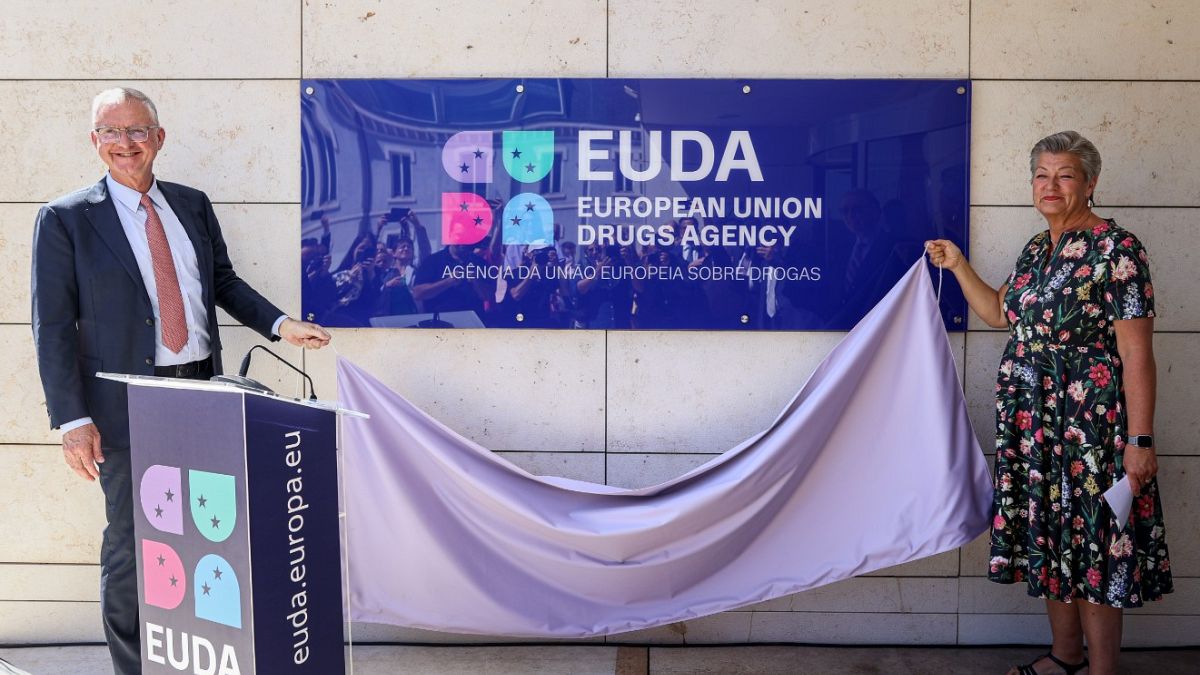The new European Union Drugs Agency (EUDA) will work to tackle the health and security threats related to illicit drugs across the bloc focusing on the monitoring of new substances and cross-border cooperation.
EUDA officially started working this week in Portugal following a 2022 Commission proposal to beef up the European Monitoring Centre for Drugs and Drug Addiction (EMCDDA).
“This will allow you [the agency] to do an even better job than you do today warning Europe of the dangers of drugs,” said Ylva Johansson, European Commissioner for Home Affairs during the official launch of the agency in Lisbon.
With worrying consumption statistics revealed in the European Drugs Report 2024, the EUDA will focus on strengthening drug preparedness in an increasingly intricate environment with “an increasingly complex drug phenomenon and the emergence of potent new substances”.
The annual drugs report found that the EU market is now characterised by a wider range of substances, with serious implications for public health amid relative consumer and scientific ignorance.
By the end of 2023, the EMCDDA monitored over 950 new psychoactive substances, 26 of which were identified for the first time in Europe that year.
“The complex drug market makes any analysis, anticipation and adoption of responses more complex and challenging,” said EUDA’s executive director Alexs Goosdeel.
He added that there are three main challenges on which the agency’s work will focus – the recent increase of poly-drug use, drug-related violence and the introduction of new synthetic substances in the EU.
The EUDA will introduce a new European Drug Alert System to issue warnings when a new drug appears on the market, and a European Threat Assessment System to help Member States anticipate drug-related challenges.
The agency will also have a stronger international position, collaborating with other EU agencies like Europol and developing cooperation agreements with third countries.
Boosting international cooperation
On the sidelines of the agency’s launch, the EUDA signed a Working Arrangement with the Ministry of Foreign Affairs and Human Mobility of Ecuador.
The two parties will cooperate to exchange expertise and best practices in health and social responses to drug issues, including prevention, treatment, harm reduction, and social integration. They will share data on new psychoactive substances (NPS) and establish a drug early warning system in Ecuador.
Cooperation with Latin America on drugs – which has been stepped up significantly in the recent years – is crucial for the EU, Commissioner Johanssen said during the launch.
She warned of the threat of drug-related violence and the presence of criminal groups in Europe specialised in drug trafficking.
“Almost all the [criminal] groups are cross-border and also working across the Atlantic. It’s important that we build our transatlantic relations because it takes a network to fight a network,” she said.
The EU also has agreements with Peru – its first such Latin American deal, signed in 2023 – and with Colombia.
As part of its new mandate, the EUDA will also sign arrangements with Bolivia, Brazil, and Mexico to reinforce cooperation.

